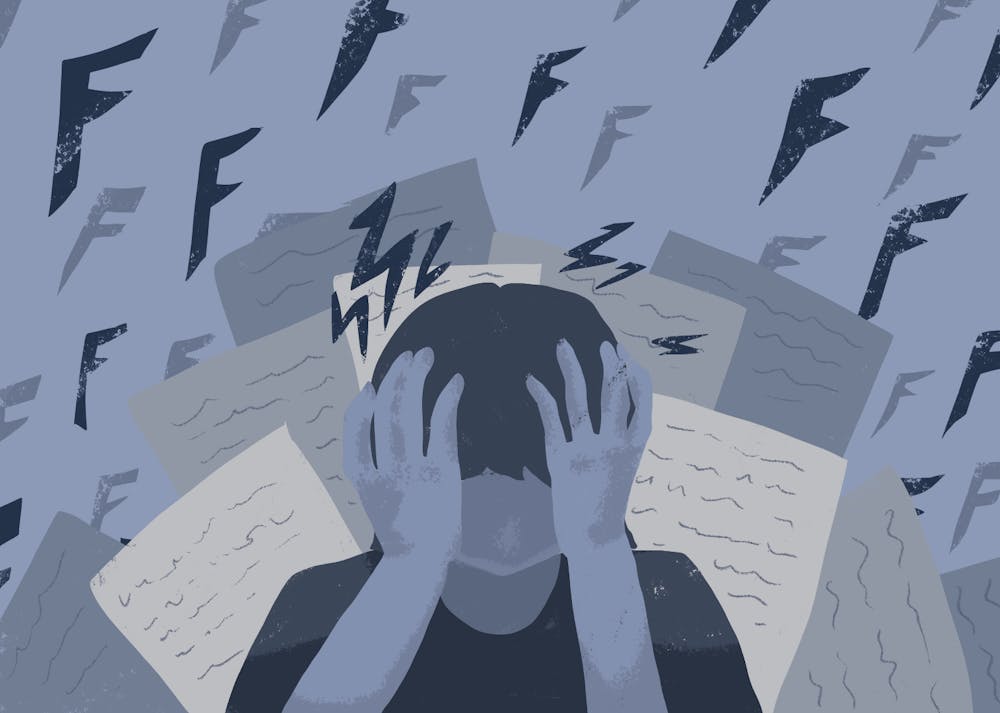The COVID-19 pandemic has had a significant impact on our lives. Many of us are still facing challenges such as stress, anxiety, fear, loss and anger. These are strong emotions that can make us feel lonely and isolated. Those who were already struggling with their mental health are now having exacerbated symptoms. When the pandemic hit, many of us reached our boiling point.
If this year has taught us anything, it's that our mental health is as important as our physical health. Taking care of a broken arm is as essential as looking after ourselves and our mental well-being.
A healthy mind equals a healthy body. We can't have one without the other. Unfortunately, many students suffer from depression, anxiety, stress and eating disorders, many of which have likely only been heightened by the pandemic and the switches away from and then back to in-person classes.
The pandemic may have receded, but the aftermath effects of mental health are here to stay. According to a 2019 report from Live Well @ ASU, almost half of ASU students had struggled with significant feelings of depression in the last 12 months. ASU needs to invest more into students' mental health.
"When you have better mental health, your whole body's kind of like a balance of things, obviously, you need, you still need physical health, but then you also need your mental health and all of those fit together and affect your life in different ways," said Carter Bower, vice president of Devils 4 Devils and a junior studying psychology and neuroscience.
Many ASU students feel they were thrown back into in-person classes without much time to adjust to the changes. After an unprecedented year of virtual learning, many of us forget how to interact and are overwhelmed.
"When it came to fall semester, the beginning of fall, and we were going back into classes, like full force, I felt very nervous and very scared. I have family members who are immunocompromised," said Emily Hinsberger, a senior studying psychology and president of Devils 4 Devils.
While mental health can be a highly stigmatized topic, it's been more widely covered in recent years and the COVID-19 pandemic only exacerbated the clear need for an open conversation around mental health.
An increase in use of counseling services isn't unique to ASU. Even in 2019 before the pandemic, almost 90% of counseling center directors reported an increase in students seeking services, according to an Association for University and College Counseling Center Directors Annual Survey. According to the American Psychological Association, university counseling services across the country are seeing waitlists for their counseling services.
"Utilization is the highest it has ever been. This is consistent with national trends," said Aaron Krasnow, associate vice president of ASU Counseling Services and ASU Health Services.
Many students are discouraged and have tried to get an appointment through ASU Health Services, but they have been turned away multiple times. Currently, all four ASU campus counseling services have month-long wait times. This means that while students are struggling with mental health, they may not have on-campus access to the services that they need.
"It is true that at certain times of the year, appointments made for counselors on campus are less available due to demand and the number of on-campus providers. In addition, texting, phone and telemedicine appointments with ASU Counseling providers through Open Call Open Chat are available every day," Krasnow said.
Students are more overwhelmed now than ever before, and taking care of themselves has become a second priority when it comes to being on top of the school workload.
When my dog passed away, for example, I was overworked and tired but I kept going with a never-ending to-do list. I felt like I did not have time to grieve or focus on my own mental health due to the high expectations of being a student.
ASU encourages students to check out some of the tips at wellness.asu.edu that are proven to be effective for the prevention and management of mental health struggles. Other available resources are the Center for Mindfulness, Compassion and Resilience, 360 Life Services and student organizations like Active Minds and Devils 4 Devils.
"Our interactions with our students are very support-based," Hinsberger said. "You can be a friend — you don't have to be a psychiatrist or a therapist to that person to still be able to love them, share empathy with them and make them feel like they're heard and supported,"
We spend so much time talking about our success that we rarely mention our failures, but all it takes is for someone to stand up and say, "I'm not doing OK," for everyone to say they feel the same way. Schools should also understand it's not just students who are struggling with mental health, their staff and faculty struggle too.
It's ASU's responsibility to step up and fill the gaps many community members are feeling when it comes to being supported in their mental health, whether that's by increasing counseling staff, being more flexible with deadlines or encouraging students to take advantage of student-centered resources.
It's important to remember that we are not alone in our struggles. Instead, we are part of a bigger conversation, one that is hard and taboo at times.
Reach the columnist at fgalanma@asu.edu and follow @fgalanma on Twitter.
Editor's note: The opinions presented in this column are the author's and do not imply any endorsement from The State Press or its editors.
Want to join the conversation? Send an email to opiniondesk.statepress@gmail.com. Keep letters under 500 words and be sure to include your university affiliation. Anonymity will not be granted.
Like The State Press on Facebook and follow @statepress on Twitter.
Continue supporting student journalism and donate to The State Press today.




